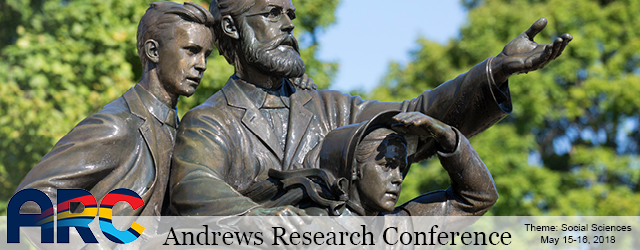The Post-Colonial State in Nigeria as a Predisposing Factor to Constant Violence
Presenter Status
Department of Political Science and Public Administration, Babcock University, Ilishan - Remo, Ogun State, Nigeria.
Presentation Type
Oral Presentation
Presentation Abstract
The Post-Colonial State in Nigeria as a Predisposing Factor to Constant Violence
By
Dr. Aaron Ola Ogundiwin
Department of Political Science and Public Administration,
Babcock University, Ilishan-Remo Ogun State, Nigeria.
olaaaron@yahoo.com
Abstract
The central and engaging issue this article grapples with is the nature of the state and the role it plays or it should play in totality in society. It poses and attempts to explain the following questions which academic discourse on the state throws up: why is the Nigerian state perennially prone to violence? What accounts for dearth of governing strategy with which to mitigate incessant violent conflict? Why does it remain conflict-generating and as crude and centripetal as the case was at the latest stage of colonialism? The paper finds it pertinent to identify and pose these questions because the state and its activities affect our lives in various ways. Our vulnerability to the ownership the state foists on our lives stems directly from the fact that no man can lead a lone life in any political state. State determines the scope of the freedom we enjoy in society. It plays a domineering role in determining how the resources of the society are allocated and utilized in a way either precipitating structural violence or mitigating it. In fact, there is a sense in which one may be justified to state that the nature of a state determines the welfare of the citizens. Against this background, the paper sets the normative consideration of the nature of the state in Nigeria against the context of incessant violence of varied drivers
Key words: The state, the Nigerian state, statehood, legitimacy, violence.
Biographical Sketch
Aaron Ola Ogundiwin
Lecturer I Political Theory, Nigerian Government and Politics, Democracy, Theorization of the state.
BSc. (Babcock University)
MSc. (University of Ibadan)
Ph.D. (Babcock University)
Contact:
Email: olaaaron@yahoo.com, ogundiwina@babcock.edu.ng Phone: +2348037679044 OR 08120059988 Office Location : BBS A9-34
RESEARCH INTERESTS
Aaron Ola Ogundiwin holds all his degrees including Ph.D. in Political Science from Babcock University and University of Ibadan. He has been Lecturer in Political Science and Public Administration at Babcock University since 2005. He was appointed the National Coordinator of the foremost coalition of Civil Society Organizations (Transition Monitoring Group, aka Centre for Civic Education) in Nigeria in 2015/2016, where he deployed scientific method to election observation besides other advocacies. His research interests include Political Theory, Comparative Politics, Nigerian Government and Politics, Democracy, State-Society Relations. He publishes in scholarly journals and co-edited Anthology of Theories and their Applications in Social and Management Sciences (2015).
The Post-Colonial State in Nigeria as a Predisposing Factor to Constant Violence
The Post-Colonial State in Nigeria as a Predisposing Factor to Constant Violence
By
Dr. Aaron Ola Ogundiwin
Department of Political Science and Public Administration,
Babcock University, Ilishan-Remo Ogun State, Nigeria.
olaaaron@yahoo.com
Abstract
The central and engaging issue this article grapples with is the nature of the state and the role it plays or it should play in totality in society. It poses and attempts to explain the following questions which academic discourse on the state throws up: why is the Nigerian state perennially prone to violence? What accounts for dearth of governing strategy with which to mitigate incessant violent conflict? Why does it remain conflict-generating and as crude and centripetal as the case was at the latest stage of colonialism? The paper finds it pertinent to identify and pose these questions because the state and its activities affect our lives in various ways. Our vulnerability to the ownership the state foists on our lives stems directly from the fact that no man can lead a lone life in any political state. State determines the scope of the freedom we enjoy in society. It plays a domineering role in determining how the resources of the society are allocated and utilized in a way either precipitating structural violence or mitigating it. In fact, there is a sense in which one may be justified to state that the nature of a state determines the welfare of the citizens. Against this background, the paper sets the normative consideration of the nature of the state in Nigeria against the context of incessant violence of varied drivers
Key words: The state, the Nigerian state, statehood, legitimacy, violence.




Acknowledgements
God, Ijeoma and Nireti.